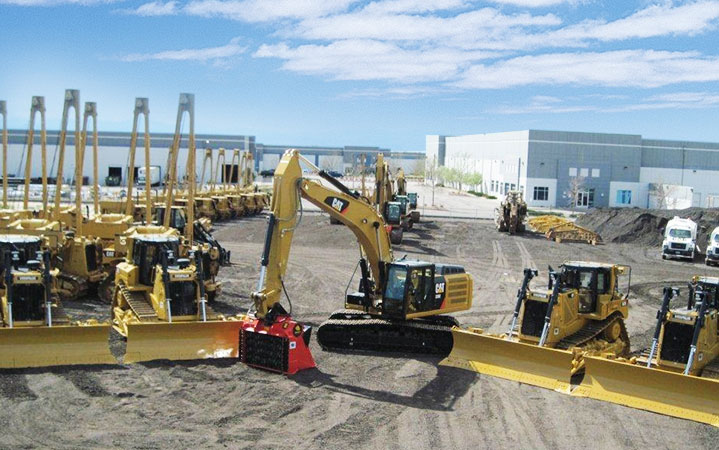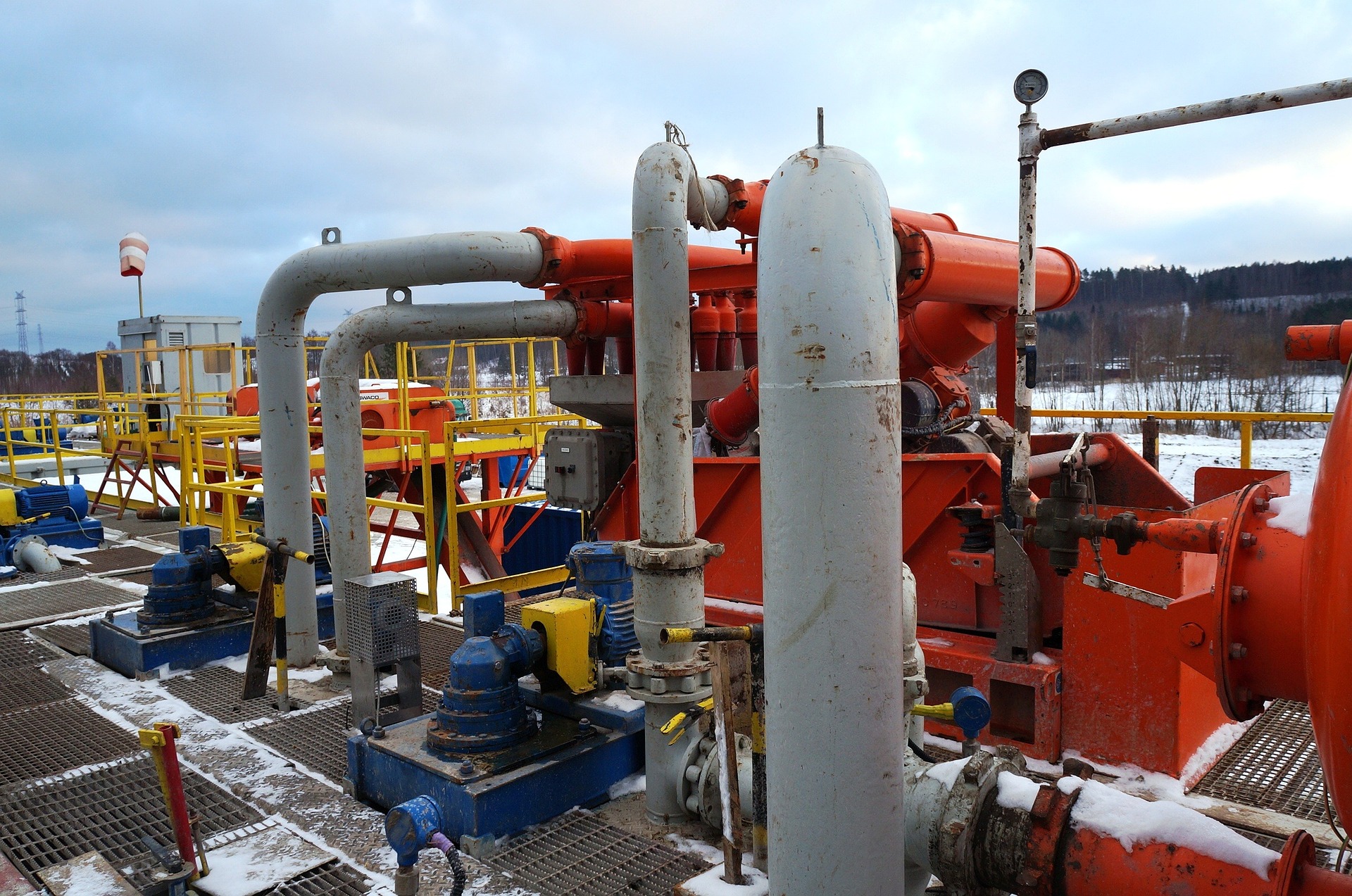A Comprehensive Guide to the Various Kinds Of Oil Field Equipment and Pipeline Equipment Available
The oil and gas sector relies greatly on specific devices for reliable extraction and transportation. Numerous sorts of machinery, from drilling rigs to storage space tanks, play essential roles in this complicated procedure. Each piece of equipment serves distinctive functions that add to total functional success. Recognizing these parts is crucial for any individual associated with the sector. As the sector develops, so also do the innovations that sustain it. What improvements are on the horizon?

Drilling Rigs: The Backbone of Oil Exploration
Drilling rigs function as the important equipment in the domain name of oil expedition, making it possible for business to accessibility hydrocarbon gets buried deep below the Planet's surface area. These rigs are available in various types, consisting of land rigs, offshore rigs, and mobile systems, each created to operate in details settings. Geared up with sophisticated modern technology, piercing rigs can penetrate geological developments with precision, guaranteeing efficient resource removal. The architectural honesty and functional abilities of these rigs are crucial, as they have to endure extreme problems and significant pressures. Furthermore, the choice of an exploration rig impacts the general job price and timeline, making it an essential consideration for oil companies looking for to maximize their exploration efforts and maximize efficiency in their procedures.
Pumps: Necessary for Fluid Motion
In the oil removal procedure, the function of pumps is substantial, promoting the movement of fluids throughout various stages of production. Pumps are vital for delivering petroleum, water, and various other liquids from below ground reservoirs to the surface area and then via pipelines to refineries. They are available in various types, consisting of centrifugal, favorable variation, and submersible pumps, each serving details purposes based upon the liquid characteristics and operational needs. Centrifugal pumps are frequently used for their efficiency in high-flow applications, while positive variation pumps excel in managing thick liquids. The option of pump influences general effectiveness, functional safety, and maintenance costs. Appropriate choice and maintenance of pumps are essential for optimizing manufacturing and lessening downtime in oil field procedures.
Valves: Controlling Circulation and Pressure

Valves play a crucial role in managing the circulation and pressure of fluids within oil areas and pipelines. Numerous kinds of valves offer unique applications, each made to satisfy certain features essential for effective operation - Superior Oilfield Rentals. Understanding the characteristics and usages of these valves is necessary for enhancing system performance and safety
Types of Valves
Necessary components in oil area operations, valves play a vital role in regulating the flow and pressure of fluids within pipes and tools. Different sorts of valves are used to fulfill the diverse requirements of oil and gas manufacturing. Typical types include entrance valves, which provide a straight-line circulation and marginal stress drop; world shutoffs, known for their strangling capabilities; and round valves, recognized for their fast on/off control. Additionally, check valves avoid backflow, while butterfly valves supply a light-weight service for managing flow. Each valve type is made with specific materials and configurations to withstand the extreme conditions frequently located in oil fields, ensuring reliability and effectiveness in operations. Understanding these types is important for reliable system administration.
Valve Applications and Features
While various kinds of valves offer distinct objectives, their main applications rotate around managing flow and stress within oil and gas systems. Valves such as gate, world, and sphere shutoffs manage liquid activity, making certain peak performance and safety and security. Gateway valves are generally utilized for on/off control, giving marginal circulation resistance. Globe shutoffs, on the other hand, deal specific circulation guideline, making them suitable for strangling applications. Sphere shutoffs are preferred for their quick procedure and tight securing abilities. Additionally, pressure safety valve are vital for protecting against system overpressure, securing tools honesty. Overall, the appropriate option and application of shutoffs improve functional efficiency, guaranteeing the reliable transport of oil and gas with pipelines and processing centers.
Compressors: Enhancing Gas Transport
Compressors play an essential function in the efficient transport of all-natural gas, ensuring that it relocates efficiently via pipelines over cross countries. These gadgets increase the stress of gas, allowing it to get rid of rubbing and altitude changes within the pipeline system. Furthermore, compressors promote the harmonizing of supply and demand, accommodating fluctuations in intake and production prices. Various kinds of compressors are employed in the industry, including centrifugal, reciprocating, and rotary screw compressors, each offering distinct benefits based upon the functional needs. Routine upkeep of these compressors is vital visit this page to maximize efficiency and decrease downtime, ultimately adding to a trustworthy gas transportation network. Their important feature underscores the importance of compressors in the overall oil and gas facilities.
Storage Tanks: Safe and Effective Fluid Administration
Effective transport of gas relies upon different support group, one of which is the correct administration of storage tanks. These containers play an important duty in safely consisting of fluids, guaranteeing that operational efficiency is maintained while lessening ecological threats. Constructed from sturdy materials, they are created to hold up against high stress and corrosive components. Properly sized and tactically situated, tank promote the smooth circulation of all-natural gas and various other fluids, avoiding bottlenecks in supply chains. Regular maintenance and tracking are vital to spot leaks or structural problems, advertising safety and conformity with governing standards. Ultimately, blog here the reliable administration of storage space tanks is vital for the general integrity and reliability of the oil and gas industry's fluid handling systems.
Pipeline Solutions: Framework for Transport
Pipeline systems act as the backbone of the oil and gas market, promoting the reliable transportation of hydrocarbons over vast distances. These systems include various elements, including pipelines, valves, pumps, and compressors, all diligently created to ensure smooth flow. The materials used in pipeline building, frequently steel or high-density polyethylene, are selected for resilience and resistance to deterioration. Pipeline networks can span across land and water, attaching production sites to refineries and distribution. In addition, advanced modern technology allows real-time tracking of circulation prices and pressure degrees, improving operational efficiency. The tactical placement of these pipelines minimizes ecological effect while optimizing resource access, consequently playing a vital duty in conference power needs around the world.
Safety Equipment: Making Certain Worker and Environmental Protection
The procedure of pipeline systems, while crucial for power transport, also presents significant safety obstacles for workers and the setting. Safety devices plays a substantial duty in alleviating these risks. Individual protective equipment (PPE) such as headgears, gloves, and non-slip footwear safeguards employees from physical dangers. Furthermore, gas discovery systems check for leakages, making sure that unsafe materials do not position a danger to personnel or the bordering community. Emergency shutdown systems are essential for promptly halting operations during a crisis, stopping prospective catastrophes. Spill control products, including absorbents and barriers, are basic for reducing ecological effect. Overall, purchasing all-encompassing security equipment is vital for preserving operational integrity and safeguarding both workers and the atmosphere in the oil and gas industry.

Regularly Asked Concerns
How Do I Select the Right Oil Field Equipment for My Task?
Choosing the best oil field equipment includes evaluating task requirements, spending plan restrictions, and operational needs. Take into consideration aspects such as devices integrity, compatibility with existing systems, and the provider's credibility to guarantee peak performance and safety.
What Are the Maintenance Needs for Oil Field Equipment?
Maintenance needs for oil field devices include normal assessments, lubrication, and timely repairs. Operators click to read should also stick to producer standards, display efficiency metrics, and warranty compliance with safety laws to improve longevity and efficiency.

Just How Can I Guarantee Conformity With Environmental Regulations?
To guarantee compliance with environmental regulations, companies need to conduct regular audits, carry out ideal practices, invest in training, maintain appropriate documentation, and remain upgraded on legislation (Superior Oilfield Rentals oilfield). Partnership with environmental companies can likewise boost adherence to policies
What Is the Ordinary Life-span of Pipeline Equipment?
The average life expectancy of pipeline devices typically ranges from 20 to 50 years, relying on variables such as worldly high quality, ecological conditions, and upkeep methods. Regular evaluations can considerably affect long life and functional efficiency.
Exactly how Do I Securely Transfer Oil Field Equipment to Remote Locations?
Moving oil field tools to remote places needs careful preparation, including route assessment, safeguarding authorizations, utilizing proper automobiles, and making certain safety and security procedures are followed. Appropriate training and communication amongst crews are essential for effective transport.